I have made two Python functions below, one for sequential (linear) search and other for binary search.
I want to do these 3 things for each size value in the given list :
generate a list of random integer values (between 1 to 1000,0000) for a given list size
run a sequential search for -1 on the list and record the time elapsed by sequential search
run a binary search for -1 on the sorted list (after sorting the list), and record the time elapsed by binary search
What I have done is :
def sequentialSearch(alist, item):
pos = 0
found = False
while pos < len(alist) and not found:
if alist[pos] == item:
found = True
else:
pos = pos + 1
return found
def binSearch(list, target):
list.sort()
return binSearchHelper(list, target, 0, len(list) - 1)
def binSearchHelper(list, target, left, right):
if left > right:
return False
middle = (left + right)//2
if list[middle] == target:
return True
elif list[middle] > target:
return binSearchHelper(list, target, left, middle - 1)
else:
return binSearchHelper(list, target, middle + 1, right)
import random
import time
list_sizes = [10,100,1000,10000,100000,1000000]
for size in list_sizes:
list = []
for x in range(size):
list.append(random.randint(1,10000000))
sequential_search_start_time = time.time()
sequentialSearch(list,-1)
sequential_search_end_time = time.time()
print("Time taken by linear search is = ",(sequential_search_end_time-sequential_search_start_time))
binary_search_start_time = time.time()
binSearch(list,-1)
binary_search_end_time = time.time()
print("Time taken by binary search is = ",(binary_search_end_time-binary_search_start_time))
print("\n")
The output I am getting is :
As we know that binary search is much faster than the linear search. So, I just want to know why it is showing the time consumed by binary search is more than the time consumed by linear search?
